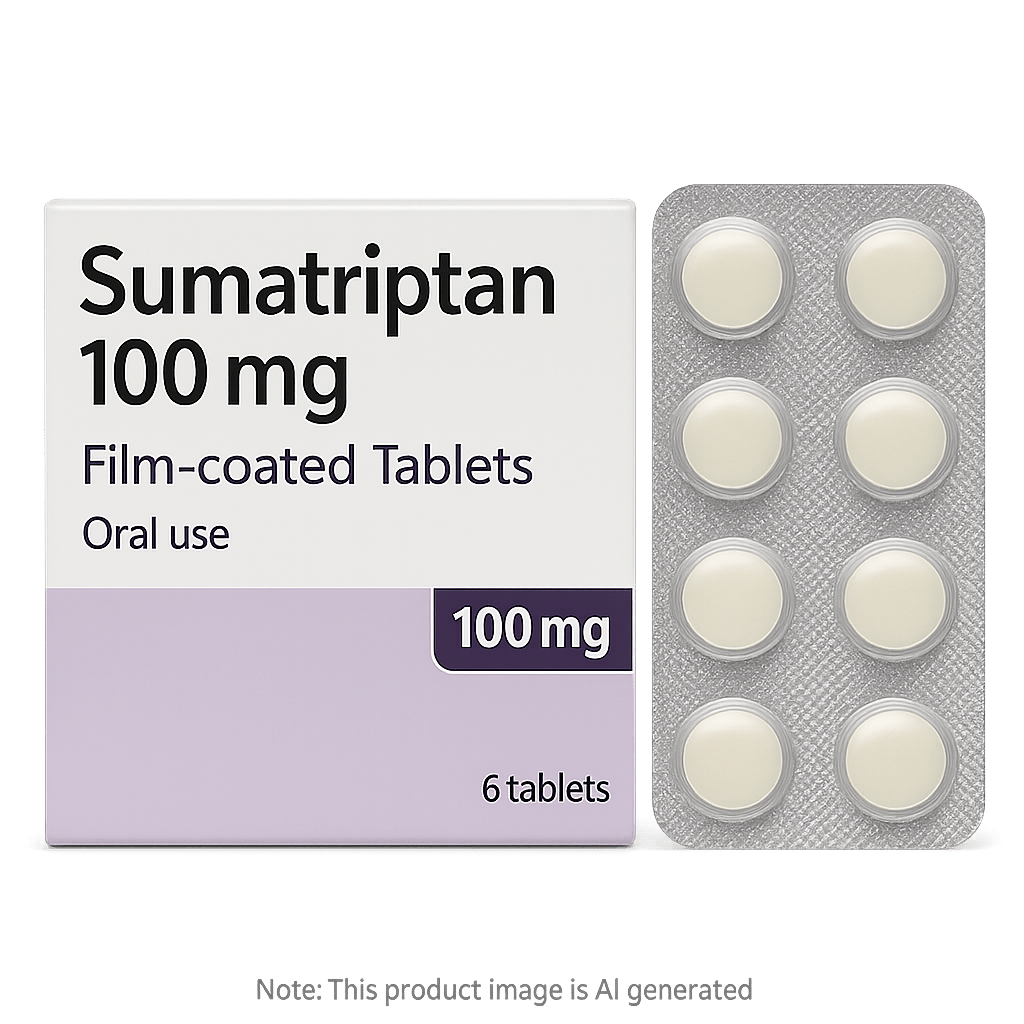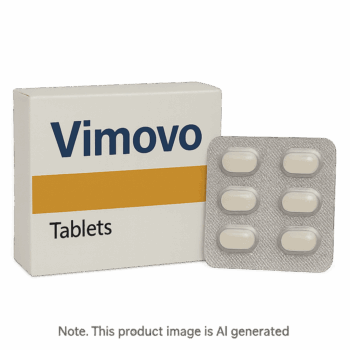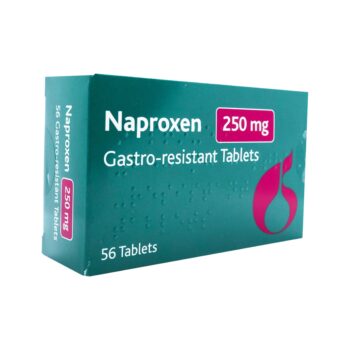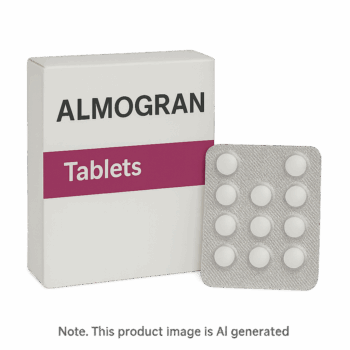Sumatriptan is a selective serotonin receptor agonist, commonly referred to as a “triptan,” used to treat acute migraine attacks. It acts primarily on the 5-HT1B and 5-HT1D receptors in the brain. During a migraine, blood vessels in the brain expand, contributing to the pain and neurological symptoms. Sumatriptan reverses this process by constricting these dilated blood vessels, helping to relieve headache pressure and reduce associated symptoms such as nausea, light sensitivity, and visual disturbances. In addition, it helps suppress the release of neuropeptides involved in pain transmission, further reducing inflammation and discomfort. It does not prevent future migraines and should only be used once a migraine begins.
Why Choose Sumatriptan
Sumatriptan is one of the most trusted and widely prescribed treatments for migraines, offering rapid symptom relief in a single dose. Clinical studies have demonstrated that many patients experience significant improvement within 30 to 60 minutes of taking the medication. It is available in several formulations—tablets, nasal sprays, and injections—making it adaptable to individual patient preferences and needs, especially for those who experience nausea or vomiting during migraine attacks. Its targeted mechanism of action makes it more effective than general painkillers in relieving migraine-specific symptoms. Patients often report improved ability to return to normal daily function shortly after taking Sumatriptan. Its use is backed by decades of clinical experience and widespread medical endorsement.
Important Note
Sumatriptan is intended only for the acute treatment of diagnosed migraines and should not be used for other types of headaches, such as tension or cluster headaches, unless explicitly advised by a healthcare provider. It should not be used as a preventive treatment. Patients with a history of cardiovascular disease, high blood pressure, stroke, or certain types of liver disease should consult their doctor before use, as Sumatriptan may not be suitable. It is not recommended for children or adolescents under the age of 18, nor for adults over 65 unless under close medical supervision. Never exceed the recommended dosage, and avoid combining it with other migraine medications containing ergotamine or other triptans.





